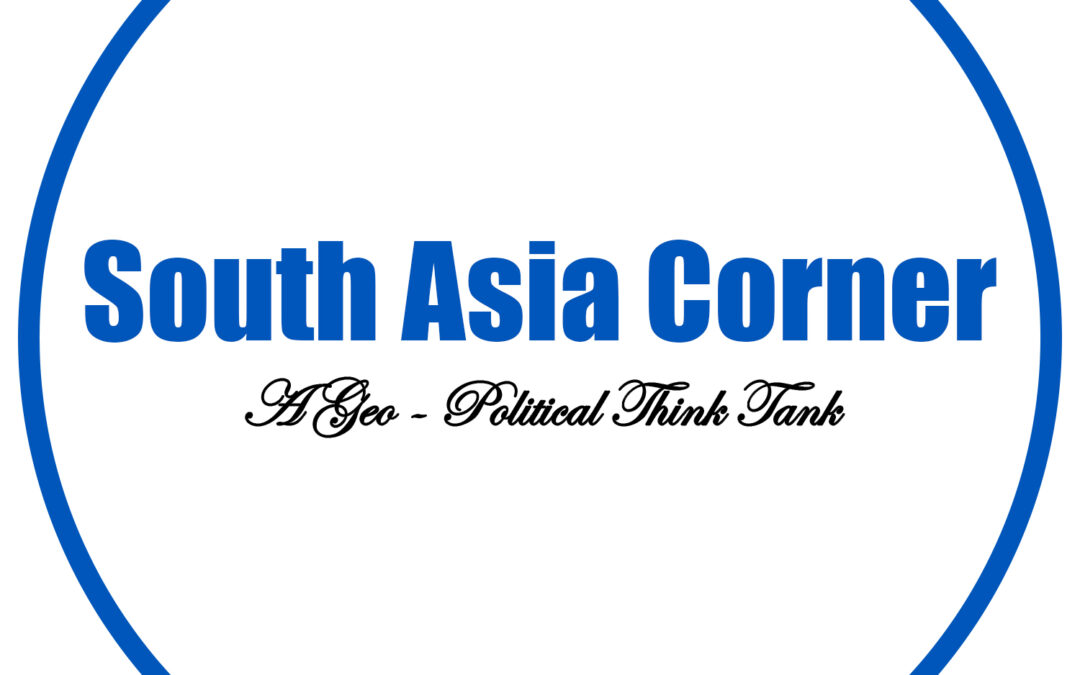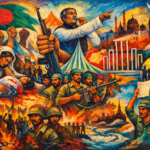Introduction
In the annals of history, the birth of Bangladesh is a poignant tale of resilience, determination, and the pursuit of freedom. Yet, despite overcoming the horrors of genocide perpetrated by Pakistan in 1971, this developing nation faces the cold shoulder of the United States through visa sanctions. This contrast becomes even more glaring when juxtaposed with America’s longstanding patronage of Pakistan, a nation that has seldom embraced democracy. This blog delves into the complexities of this issue, exploring the historical context and the implications of U.S. policy on Bangladesh.
The Birth of Bangladesh: A Triumph Over Tragedy
Bangladesh’s journey to independence was marked by a harrowing chapter in its history, the 1971 Bangladesh Liberation War. The people of East Pakistan, now Bangladesh, had long endured economic disparity and political oppression at the hands of West Pakistan. In March 1971, the Pakistani military launched a brutal crackdown, leading to a full-scale genocide. The international community watched silently as an estimated three million lives were lost and countless others were subjected to unimaginable atrocities.
After months of bloodshed and struggle, Bangladesh emerged as an independent nation on December 16, 1971. The world was finally awakened to the horrors of the genocide, but the scars ran deep, and the country faced enormous challenges in rebuilding itself.
U.S. Silence during Bangladesh’s Darkest Hour
Despite the scale of the tragedy and the cries for help, the United States maintained a deafening silence during the genocide. Realpolitik considerations during the Cold War era played a significant role in shaping U.S. policy. The U.S. chose to support Pakistan, viewing it as a strategic ally against the Soviet Union, turning a blind eye to the atrocities committed in East Pakistan.
This indifference left a lasting impression on the people of Bangladesh, who felt abandoned by the world’s most powerful nation in their darkest hour. It is a wound that has yet to fully heal and continues to influence Bangladesh’s perceptions of the United States.
The Visa Sanctions: A New Wound
Fast forward to the present, and Bangladesh faces a new challenge: visa sanctions imposed by the United States. These sanctions have created significant obstacles for Bangladeshi nationals seeking to travel to the U.S. for business, education, or leisure. The reasons cited for these sanctions include concerns over labour rights and human trafficking.
While it is essential to address these issues, the question arises: Is the punishment proportionate to the alleged infractions? For a nation striving to improve its human rights record and promote democracy, the visa sanctions appear excessive, especially compared to America’s treatment of other countries.
A Double Standard: Pakistan’s Patronage
The most glaring contrast is the United States’ relationship with Pakistan. Pakistan has consistently received political and military U.S. support despite a tumultuous history of military coups and authoritarian rule. This continued despite Pakistan’s own human rights violations and questionable democratic credentials.
One cannot help but wonder why Bangladesh, a nation that has made significant strides in strengthening its democratic institutions and improving human rights, faces visa sanctions while Pakistan enjoys preferential treatment.
Conclusion: A Call for Fairness and Reconciliation
Bangladesh’s history is a testament to the resilience of its people in the face of unimaginable adversity. The scars of the 1971 genocide run deep, and the imposition of visa sanctions by the United States only adds insult to injury. It is time for the United States to reconsider its stance and engage with Bangladesh more rationally and reasonably.
The double standards in U.S. foreign policy, especially in its treatment of Bangladesh and Pakistan, cannot be ignored. While addressing concerns about labour rights and human trafficking is essential, it should be done proportionately and without inflicting undue hardship on the people of Bangladesh.
Reconciliation between the United States and Bangladesh requires acknowledging the past and working towards a more equitable relationship. As Bangladesh continues to grow as a democratic and responsible nation on the world stage, it deserves the support and recognition it has long sought.
In the spirit of justice and fairness, it is time for the United States to extend a hand of friendship to Bangladesh, a nation that has fought for its freedom and continues to strive for a brighter future.






